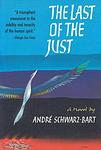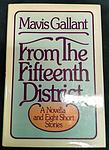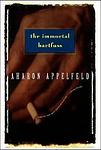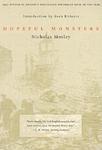The Greatest "Social & Cultural Fiction, Europe" Books of All Time
Click to learn how this list is calculated.
This list represents a comprehensive and trusted collection of the greatest books. Developed through a specialized algorithm, it brings together 300 'best of' book lists to form a definitive guide to the world's most acclaimed books. For those interested in how these books are chosen, additional details can be found on the rankings page.
Genres
Social & Cultural Fiction is a literary category that encompasses novels and stories that delve into the complexities of society and culture, exploring themes such as class, race, gender, and identity within specific social contexts. These narratives often provide a lens through which readers can examine the intricacies of human relationships and the impact of cultural norms and societal structures on individuals and communities. By offering a fictional yet reflective portrayal of real-world social dynamics, this genre invites readers to gain a deeper understanding of the diverse experiences that shape our world. Authors in this category frequently use their characters and settings to comment on contemporary issues, challenge prevailing ideologies, and provoke thought about the possibility of social change, making Social & Cultural Fiction a powerful tool for empathy and a mirror for the ever-evolving human condition.
The "Europe" category for books encompasses a wide range of literature that explores the history, culture, politics, and geography of the continent. It includes works of fiction, non-fiction, and memoirs that delve into the diverse and complex societies of Europe, from the ancient civilizations of Greece and Rome to the modern-day European Union. This category also covers books that examine the impact of European colonialism and imperialism on other parts of the world, as well as the continent's role in global affairs. Overall, the "Europe" category offers readers a rich and varied selection of books that illuminate the many facets of this fascinating and influential region.
Countries
Date Range
Reading Statistics
Click the button below to see how many of these books you've read!
Download
If you're interested in downloading this list as a CSV file for use in a spreadsheet application, you can easily do so by clicking the button below. Please note that to ensure a manageable file size and faster download, the CSV will include details for only the first 500 books.
Download-
1. Doctor Zhivago by Boris Pasternak
Set against the tumultuous backdrop of the Russian Revolution, the book follows the life of a physician and poet, Yuri Zhivago, as he navigates the political and social upheaval of the early 20th century. Torn between his love for two women, his wife Tonya and his passionate mistress Lara, Zhivago's personal struggles mirror the larger societal changes occurring around him. The novel explores themes of love, war, and the human spirit, offering a poignant and complex portrait of life during a time of revolutionary change.
-
2. Bleak House by Charles Dickens
"Bleak House" is a complex narrative that critiques the British judiciary system through a long-running legal case known as Jarndyce and Jarndyce. The story follows the lives of numerous characters, including the kind-hearted Esther Summerson, her friends Richard and Ada, and their guardian, Mr. Jarndyce, who are all caught in the web of a legal dispute over an inheritance. The novel is known for its detailed depiction of the legal system, its vivid characters, and its exploration of social issues of the time.
-
3. Gravity's Rainbow by Thomas Pynchon
Set during the end of World War II, the novel follows Tyrone Slothrop, a lieutenant in the U.S. Army, as he tries to uncover the truth behind a mysterious device, the "Schwarzgerät", that the Germans are using in their V-2 rockets. The narrative is complex and multi-layered, filled with a vast array of characters and subplots, all connected by various themes such as paranoia, technology, and the destructive nature of war. The book is known for its encyclopedic nature and its challenging, postmodernist style.
-
4. The Radetzky March by Joseph Roth
"The Radetzky March" is a historical novel that explores the decline and fall of the Austro-Hungarian Empire through the experiences of the Trotta family, across three generations. The narrative begins with Lieutenant Trotta, who saves the life of the Emperor during the Battle of Solferino, and follows his descendants as they navigate the complexities of life in the empire. The novel delves into themes of duty, honor, and the inevitability of change, painting a vivid picture of a society in decline.
-
5. Burger's Daughter by Nadine Gordimer
"Burger's Daughter" is a novel centered around Rosa Burger, a white woman in South Africa during the apartheid era. The narrative delves into Rosa's life and struggle to find her identity, while also dealing with the legacy of her parents who were anti-apartheid activists. This story provides a deep look into the political and social climate of South Africa during a time of racial segregation and oppression.
-
6. Daisy Miller by Henry James
"Daisy Miller" is a novella that explores the social differences between American and European society in the late 19th century. The story follows a young, affluent American woman named Daisy Miller, who defies societal norms while traveling in Europe. Her flirtatious behavior and disregard for European customs create a scandal among the upper-class expatriate community, particularly catching the attention of a young American man who is both attracted to and repulsed by her nonconformity. Ultimately, Daisy's refusal to conform to societal expectations leads to her downfall.
-
7. Flowers in the Attic by V. C. Andrews
The novel focuses on four siblings who, after the tragic death of their father, are locked away in the attic of their cruel grandmother's mansion as their mother tries to inherit the family fortune. The children endure years of abuse and neglect, and as their mother's visits become less frequent, they must rely on each other for survival. Over time, they form a deeply complex and troubling relationship, leading to a shocking and devastating climax.
-
8. The Last Of The Just by André Schwarz-Bart
The book is a poignant and harrowing narrative that follows the tragic history of the Levy family over eight centuries, focusing on the lineage of the "Just Men" - thirty-six pure souls in each generation said to bear the sufferings of the world. The story culminates with the life of Ernie Levy, who, despite the encroaching horrors of the Holocaust, maintains an unwavering faith in human goodness. His journey through the ghettos and concentration camps of World War II Europe is a testament to the endurance of the human spirit in the face of unspeakable evil, as he upholds his family's legacy of compassion until his last breath.
-
9. The Engineer of Human Souls by Josef Škvorecký
The novel is a semi-autobiographical narrative of a Czechoslovakian writer who has become a professor at a Canadian university, teaching American literature. The narrative switches between his current life in Canada and his memories of the past in Czechoslovakia, including the Nazi occupation and the Communist regime. The book presents a complex portrayal of the life of an intellectual in exile and the challenges of cultural assimilation, while also exploring themes of love, politics, and the power of literature.
-
10. The General of the Dead Army by Ismail Kadare
The novel follows an Italian general who is tasked with recovering the bodies of fallen Italian soldiers in Albania after World War II. Accompanied by a priest, the general faces numerous challenges, including harsh weather, uncooperative locals, and his own growing despair. As he uncovers the stories of the dead, he is forced to confront the brutal realities of war and the haunting specter of his own mortality. The novel explores themes of war, death, and the human condition.
-
11. The Confessions Of A Haut Bourgeois by Sándor Márai
"The Confessions of a Haut Bourgeois" is a memoir that delves into the life and reflections of a man born into the Hungarian upper middle class at the turn of the 20th century. The narrative explores the author's formative years, education, and experiences that shaped his worldview, set against the backdrop of a fading Austro-Hungarian Empire and the tumultuous changes sweeping through Europe. It is a poignant examination of the cultural and social mores of the time, as well as a personal reckoning with the loss of the author's own privileged world and the search for identity in a society undergoing profound transformation.
-
12. The Museum of Unconditional Surrender by Dubravka Ugrešić
"The Museum of Unconditional Surrender" is a poignant and surreal narrative that explores the dislocation and fragmentation experienced by an unnamed narrator who has been exiled from her homeland, former Yugoslavia. The novel is presented as a collection of fragments, including letters, diary entries, and observations, which together portray a deep longing for a lost homeland and an exploration of memory, identity, and the power of art. The story is centered around a photograph of a walrus in a Berlin zoo, which serves as a metaphor for the narrator's own feelings of displacement and alienation.
-
13. The Moon is Down by John Steinbeck
The book tells the story of a small coastal town in Northern Europe that is occupied by an invading, unnamed army. The town's mayor, a central figure in the story, attempts to maintain order and dignity in the face of the occupation, while the townspeople begin to form a resistance against the invaders. The narrative explores the tensions and moral complexities of war, occupation, and resistance, as well as the human capacity for dignity and bravery under oppressive circumstances.
-
14. From The Fifteenth District by Mavis Gallant
The book is a collection of short stories set in Europe following World War II, primarily focusing on the lives of expatriates and displaced individuals. Through a series of vividly drawn characters, the narrative explores themes of memory, alienation, and the search for identity amidst the lingering shadows of conflict. The stories are linked by their setting in the "Fifteenth District" of a European city, which serves as a microcosm of a continent struggling to reconcile its past with the present, and where the ghosts of history continue to influence the living in profound and often unsettling ways.
-
15. The Nature Of Blood by Caryl Phillips
The book interweaves multiple narratives spanning different times and places, exploring themes of displacement, identity, and belonging. It delves into the experiences of a young Jewish girl during the Holocaust, an African servant in Renaissance Venice, and a British soldier in Palestine after World War II, among others. Through these disparate but interconnected stories, the novel examines the historical and ongoing consequences of racism and intolerance, as well as the complex legacies of trauma and memory. The characters' struggles for acceptance and peace reflect the broader human quest for dignity and connection in a world often marred by prejudice and division.
-
16. A Spare Life by Lidija Dimkovksa
"A Spare Life" is a poignant and thought-provoking novel that explores the lives of conjoined twin sisters, Zlata and Srebra, as they navigate the complexities of their shared existence in war-torn Macedonia. Told through the eyes of Zlata, the narrative delves into themes of identity, freedom, and the pursuit of individuality, as the sisters grapple with their physical and emotional bonds. With lyrical prose and a powerful portrayal of sisterly love, this novel offers a unique and compelling perspective on the human experience.
-
17. The Immortal Bartfuss by Aharon Appelfeld
The book is a poignant exploration of the life of a Holocaust survivor grappling with the weight of his past and the struggle to find meaning in the aftermath of unimaginable trauma. The protagonist, a man who has outlived the horrors of a Nazi concentration camp, finds himself in a small Israeli town, where he is haunted by memories and the loss of his family. His survival comes with the burden of guilt and the challenge of reconnecting with a world that has been irrevocably changed. Through his journey, the narrative delves into themes of memory, identity, and the complex process of healing from psychological scars, offering a stark examination of the enduring impact of the Holocaust on individual lives.
-
18. Hopeful Monsters by Nicholas Mosley
"Hopeful Monsters" is a novel that explores the lives of two intellectuals, a German physicist and a British anthropologist, against the backdrop of the political and scientific upheavals of the 20th century. Their personal journeys and love story are intertwined with their pursuit of understanding in the realms of physics, biology, and anthropology, as they grapple with issues such as quantum mechanics, genetics, and the nature of consciousness. The narrative also delves into the moral and ethical challenges posed by the rise of fascism and the advent of the atomic bomb.
Reading Statistics
Click the button below to see how many of these books you've read!
Download
If you're interested in downloading this list as a CSV file for use in a spreadsheet application, you can easily do so by clicking the button below. Please note that to ensure a manageable file size and faster download, the CSV will include details for only the first 500 books.
Download
















